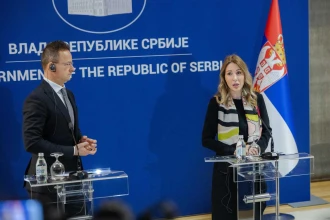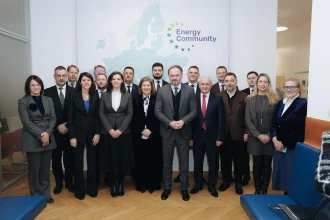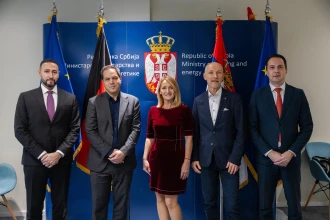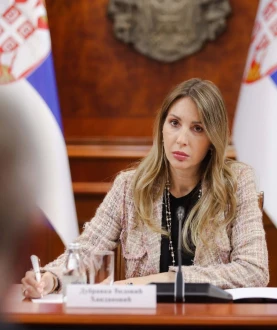Minister of Mining and Energy, Dubravka Djedović Handanović, spoke today with Minister of Foreign Affairs and Trade of Hungary, Péter Szijjártó, about joint projects in the energy sector and cooperation between the two countries in the fields of gas, oil and electricity supply.
Djedović Handanović and Szijjártó: The goal of regional cooperation is greater energy security and independence
"Regional cooperation is the key to achieving energy security, and the cooperation between Serbia and Hungary in several fields, especially in the energy sector, proves that. Apart from cooperation in the field of gas supply, we intend to improve connections in the supply of oil, as well as in the transmission of electricity. The supply of energy sources is stable, and in addition to domestic reserves, we also have stocks of 163 million cubic meters in storage facilities in Hungary at the moment. We discussed the dynamics of using the existing stocks, as well as the conditions under which we can secure additional volumes of gas, providing us with additional security in the coming winter," said Djedović Handanović after the meeting with the Hungarian minister in Budapest.
The Serbia-Hungary oil pipeline has been designated as one of the priority projects for both countries in the energy sector. Members of the working group from Transnafta and the Hungarian MOL discussed this project today at a meeting that also took place in Budapest.
The Minister said that Serbia has started preparations for the construction of the oil pipeline, including preparation of a spatial plan, strategic environmental impact assessment, and necessary technical documentation, and that it is important that the activities of both partners are coordinated.
"The goal is to start the works already next year, so that the oil pipeline will be completed by 2027. The value of the investment is estimated at about 150 million euros, the length of the oil pipeline is 128 kilometres, and the capacity will be about five million tons of oil per year. We agree that we must act quickly, in concert and carefully monitor the progress of work on this capital energy project to diversify oil supply," said Djedović Handanović.
She reminded that the two countries are jointly building the Pannonian Corridor, which will double the capacity for electricity transmission between Serbia and Hungary after ith has been completed. The investment in the Pannonian Corridor is worth around 100 million euros, and the goal is to complete it in the next four years. In addition, the plan is for Hungary to join the first regional power exchange that Serbia established with Slovenia, which should be implemented in the next few weeks. We are proud of the result of this cooperation because it is a good foundation for a single regional electricity market and is a successful example of cooperation between countries, EU members and countries in the accession process," said the Minister.
Szijjártó thanked the Minister for the excellent cooperation in the previous period, announced the joining of the regional power exchange and confirmed that security of supply remains a priority for Hungary.
"We will not jeopardize the security of our country's energy supply in any way, regardless of anyone's political or ideological preferences," he said.
During her visit to Budapest, the Minister of Mining and Energy also participated in the Balkan Forum where she spoke about plans for the development of the energy sector in the coming period.
"Serbia's strategic goal is energy independence at the lowest cost for citizens and the economy. That is why our focus is on three key areas - ensuring security of supply through the construction of new infrastructure, such as the completed gas interconnection with Bulgaria, and in the future connections with North Macedonia and Romania, increasing energy independence by building new production capacities, for which we need Bistrica and Djerdap 3, as well as the implementation of new solar capacities totaling 1 GW., and also strengthening regional connectivity, i.e. energy networking with neighboring countries. Our cooperation with Hungary serves as a prime example of this, said Minister of Mining and Energy, Dubravka Djedović Handanović in Budapest today.


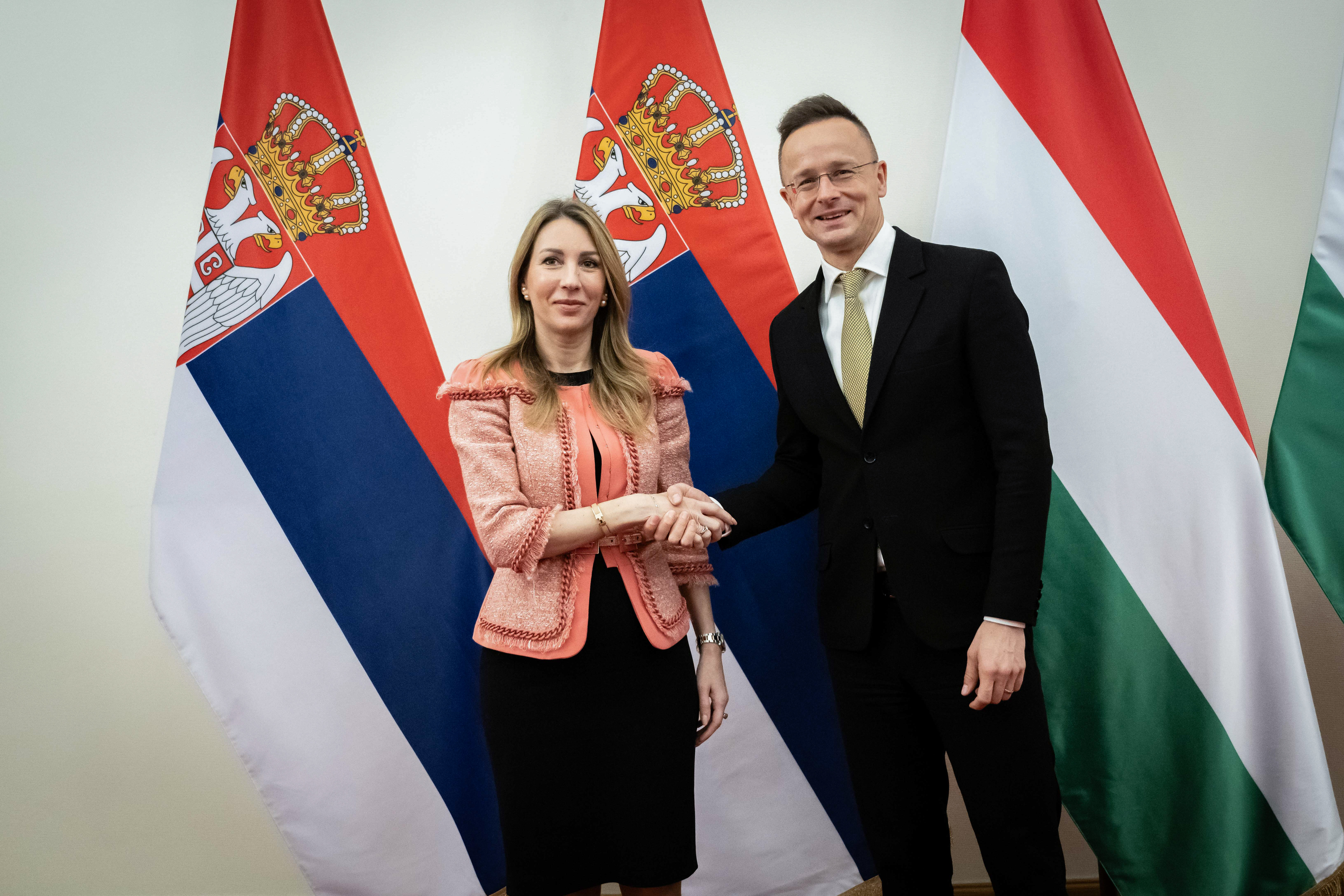
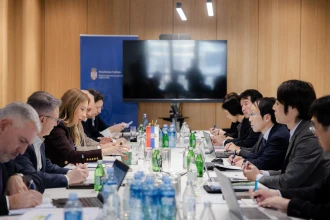
.webp)
